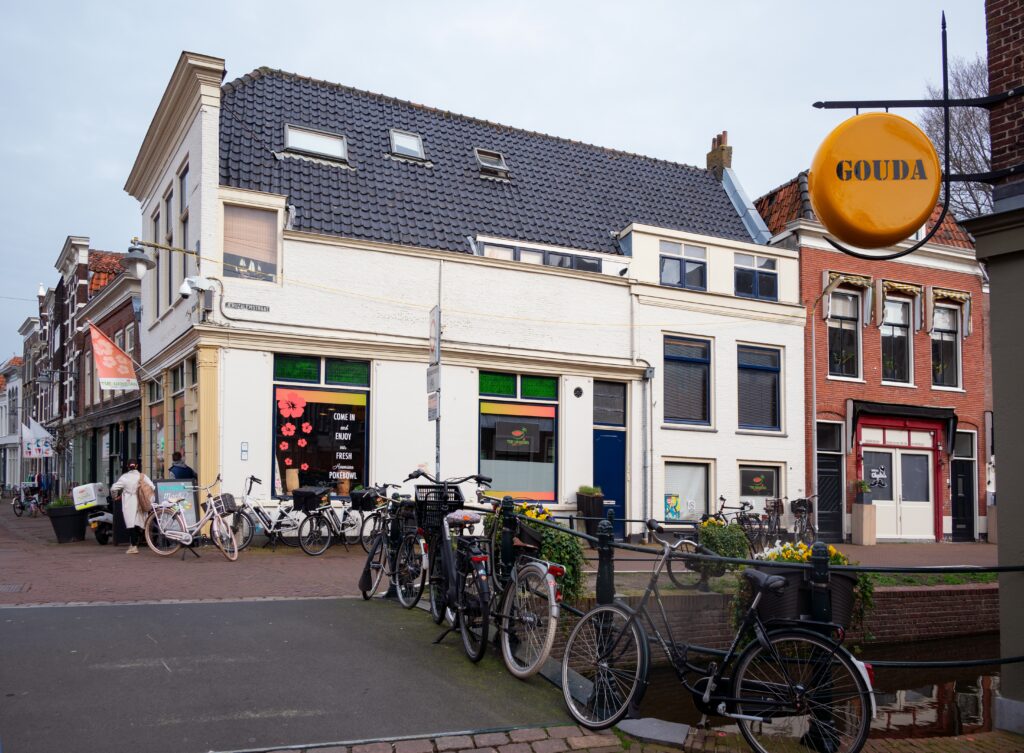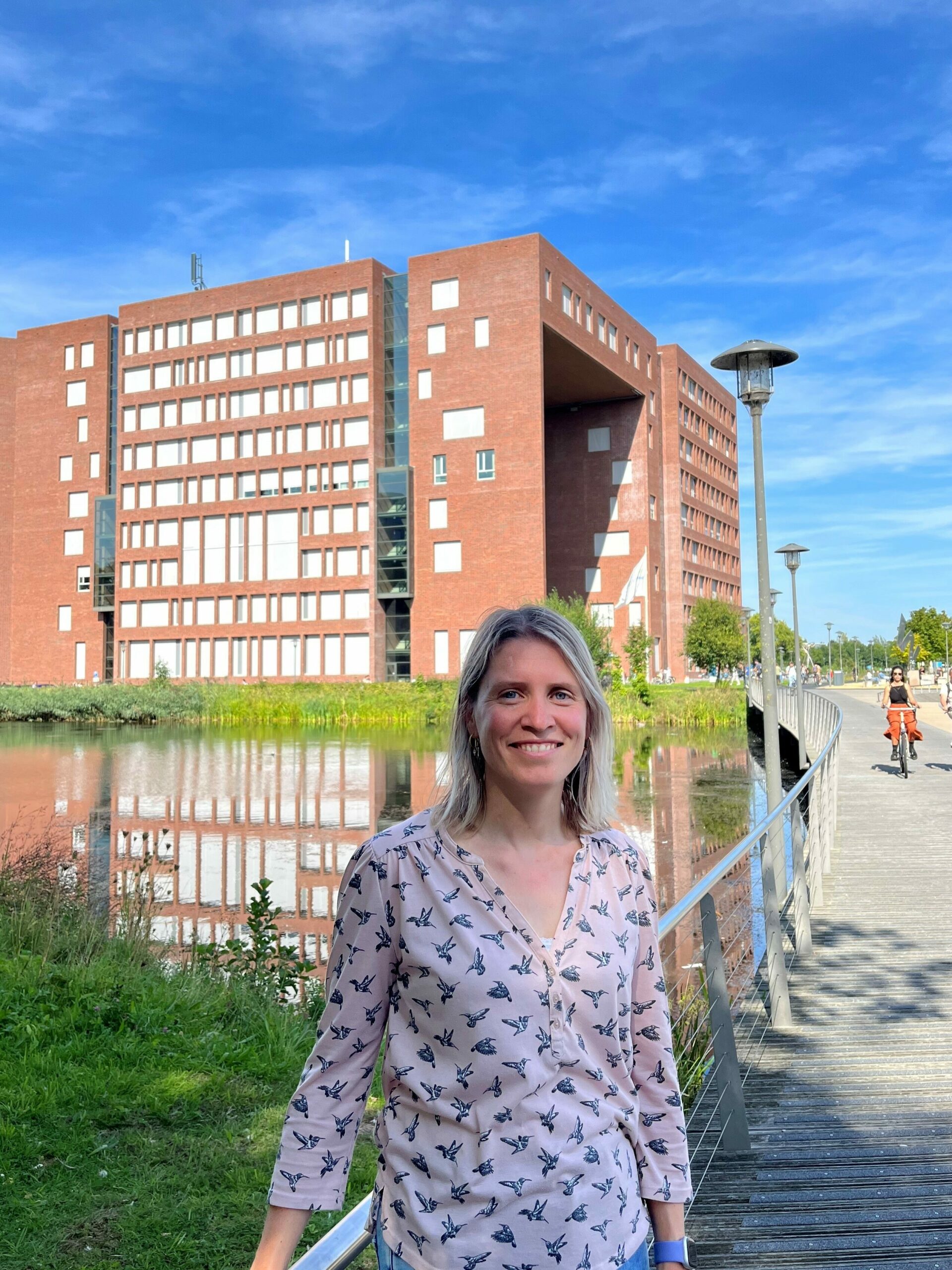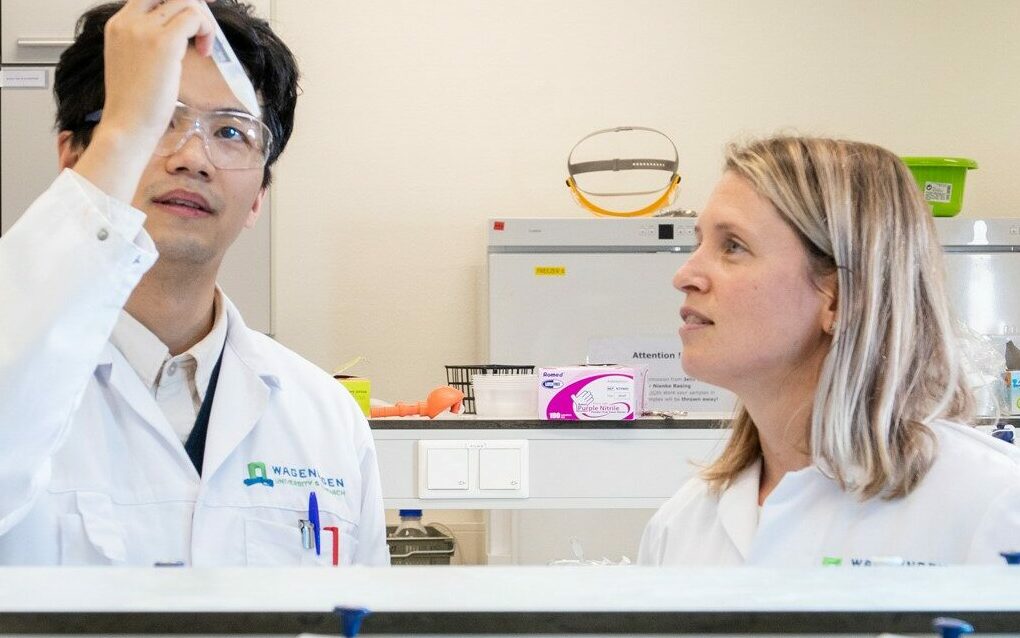Meet the researcher: making precision fermentation cheese with Etske Bijl
A career spent analysing the chemistry behind milk has given Etske Bijl unique insights to help her develop the world’s first precision fermentation-made hard cheese.


Name: Etske Bijl
Job title: Assistant Professor
Organisation: Wageningen University and Research
Sustainable protein specialism: Food technology, precision fermentation
A career spent analysing the chemistry behind milk has given a Dutch researcher unique insights to help her develop the world’s first precision fermentation-made hard cheese.
Etske Bijl leads the Animal Free Milk Protein research project at Wageningen University and Research (WUR) in the Netherlands – a major European hub for alternative protein research – trying to create a product replicating the country’s famous Gouda cheese.
Precision fermentation involves introducing gene sequences typically found in animal products such as cow’s milk into a microorganism such as yeast – telling it to produce a specific protein to deliver the distinctive flavour and texture of meat, eggs or dairy.
Her team is using this process to produce caseins and then subsequently assemble them into micelles – large protein clusters that are essential for cheese production as they enable milk to curdle.
She says the work aims to recreate the initial step of conventional cheese production, developing the basic structure. However, just as cheesemakers would follow this with further steps to ripen the cheese, producing specific flavours and textures, her team will go on to develop a more complicated product throughout the five-year project.
They are beginning by recreating the sweet, creamy taste of Gouda – one of the world’s most popular cheeses – but aim to use the same technique to develop a range of precision fermentation-made cheese products.
Not for cocktail parties yet
A major problem they must overcome is scale, as the initial samples are only 100mg – around the size of a headache tablet.
“It’s not for cocktail parties yet,” she says, adding that once the initial stage of protein production is perfected, researchers can build on this work to make larger amounts, with a separate WUR project set to look into scaling up.
She knows the work is essential as consumer surveys often reveal that cheese is the food people reducing their animal product consumption find hardest to give up, and many of the plant-based products available so far aren’t able to recreate the taste and mouthfeel of hard cheeses.
The complex structure of dairy has been a longstanding interest for Etske, who completed a PhD in the topic after studying food technology at WUR.
This interest led her to postdoctoral work at Aarhus University in Denmark looking in detail at the composition of milk proteins, before working for several years as a researcher for the Dutch dairy company FrieslandCampina – both of which have provided vital experience.
Securing future food production
“Milk is really fascinating,” she said. “It’s the only food you consume as a baby and for all mammals it’s the first thing they eat, so it’s a really important food. However, I’m also very aware of the issues around climate change and the fact we need to do something to secure our future food production.”
Although precision fermentation has been used for decades to produce food ingredients such as rennet, its use in developing more sustainable foods is very new – something Etske was acutely aware of as she submitted funding applications.

“We tried to submit project proposals for several years before starting this research,” she said. “And they were all rejected because people thought this wasn’t possible. But then there was a tipping point and suddenly there was a lot of interest.”
The team is also interested in community outreach and communication, with members presenting the study at public events such as Dutch Design Week. A separate element of the project involves working with social scientists who are asking consumers whether they would buy precision fermentation-made products and asking farmers whether they see this new food as an opportunity or a threat.
“Ultimately,” she says, “it’s not just about the technology – it’s about the perception of what’s happening.”
Growing interest in field
Alongside the research, Etske lectures on WUR’s Dairy Chemistry and Physics MSc programme, which covers precision fermentation, and says students are becoming increasingly interested in the field. Students from a range of disciplines regularly apply for internships on the project and the team is often contacted by members of WUR’s Alt Protein Project (APP), a student-led group setting out to help the university community to understand the opportunities.
Etske advises any students interested in sustainable proteins to contact APP groups if there are any chapters at their institutions or to watch presentations or webinars by researchers in the field. And although WUR is part of the Netherlands’ Foodvalley research and development ecosystem, making the university a hotspot for students who want to get involved, she says courses, projects and new sources of funding are likely to open up soon across the whole of Europe.
“There are upcoming opportunities to look out for,” she said: “Not only for PhD positions but for people to write their own grant applications.”
Are you interested in getting involved in the science of plant-based food, cultivated meat and fermentation? Take a look at our resources or check out our science page.
If you’re a researcher:
- To find funding opportunities, check out our research funding database for grants from across the sector, and our research grants page showcases funding available from GFI.
- Explore our Advancing Solutions initiative, which highlights key alternative protein knowledge gaps.
- Subscribe to the collaborative researcher directory to find potential collaborators or supervisors in the field.
- Find out about research projects that have already been funded on our research grants tracker or our grantee web pages.
- Look out for monthly science seminars run through our GFIdeas community or use our company database to identify commercial partners.
If you’re a student:
- Find educational courses around the globe through our database.
- Sign up for our free online course introducing the science of sustainable proteins, explore our resource guide explaining what is available to students or newcomers to the space, and check out our careers board for the latest job opportunities in this emerging field.
